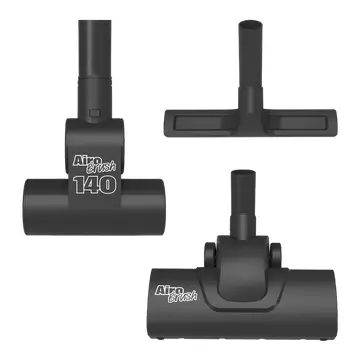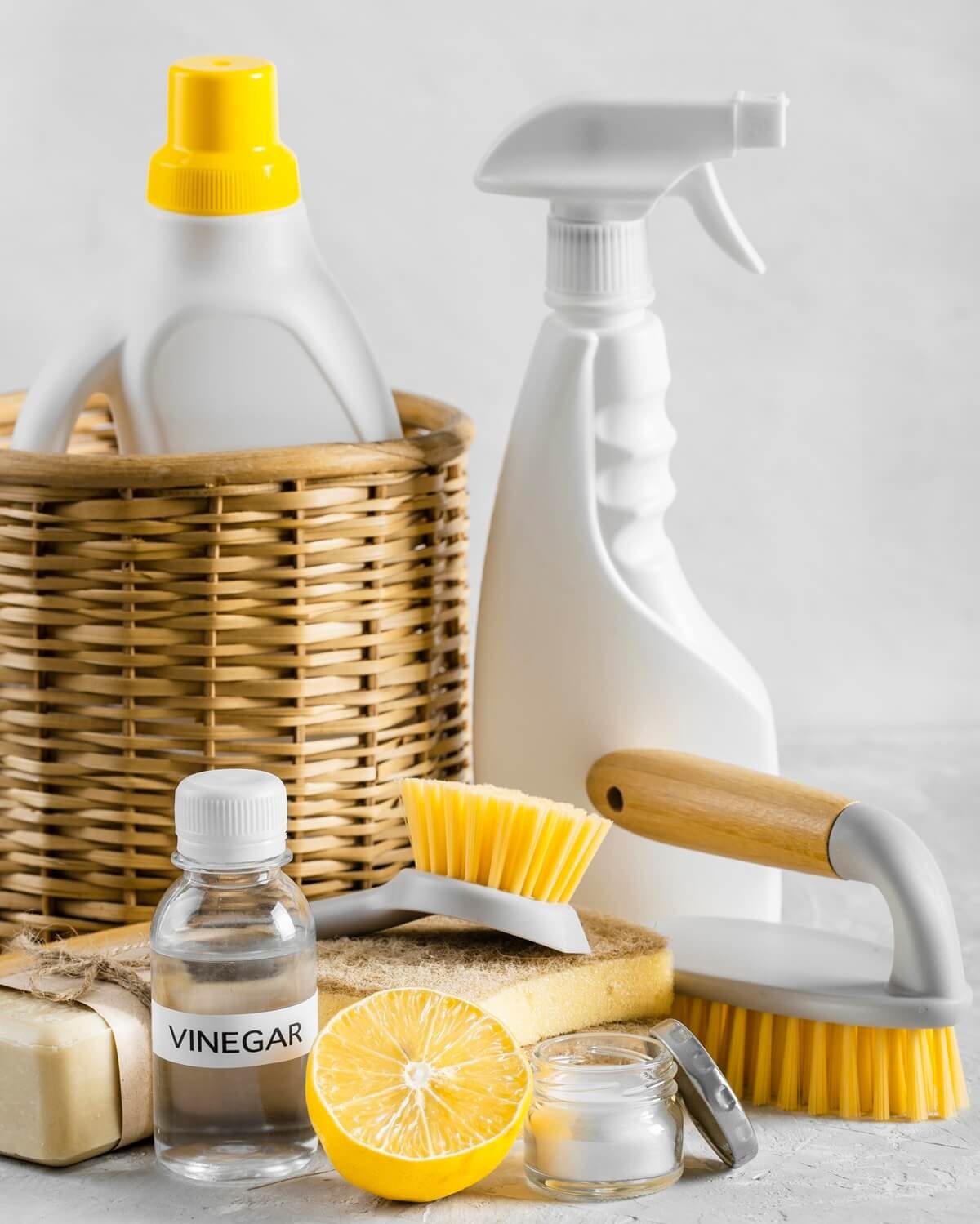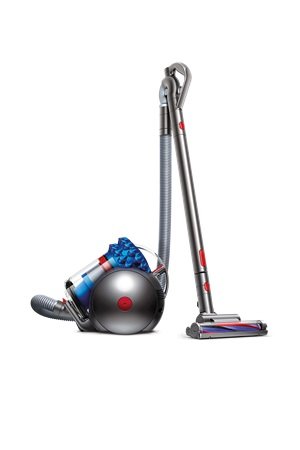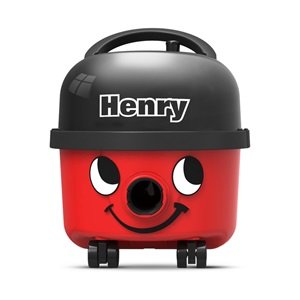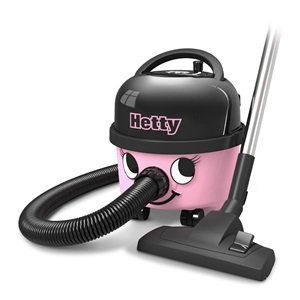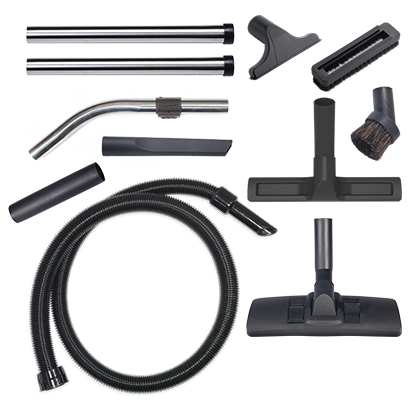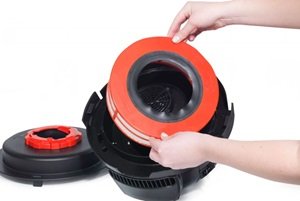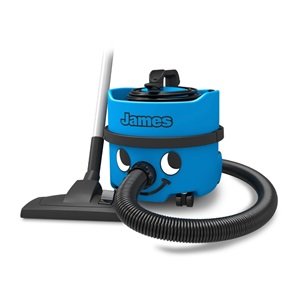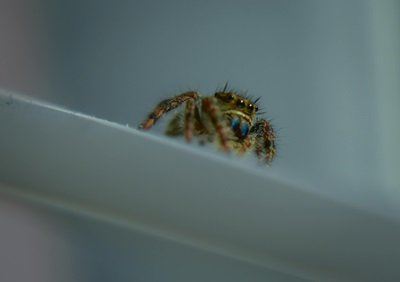Quick answer – there’s probably a 50% chance a spider will survive a Henry Hoover. If you change the bag straight away, however, the spider can’t get out and you’ve stopped it being able to come back into your home.
This article may contain affiliate links, meaning we may earn a commission from any purchases you make. For more information, click here.
We’ve all been there – you’re settling down for a meal and all of a sudden you spot a great big spider out of the corner of your eye. If it was a little one you’d probably just deal with it with a piece of tissue paper, but a larger spider, especially for those who are scared of spiders, might mean this is easier said than done.
That’s where Henry comes in – as you may be tempted to reach immediately for your vacuum to keep as much distance between yourself and the spider as possible, and dispose of your new eight-legged intruder. Not so fast, however – as spiders can be quite tough and might even be able to survive being sucked into your Henry. And should we be looking for more humane methods to get rid of the spider?
In this article we go through how spiders might end up surviving your vacuum cleaner and what you can do instead to discourage spiders coming into your house.
Spiders Can Survive Any Hoover – Not Just a Henry
Let’s get this out there – hoovering up a spider with your Henry probably has an 80% chance of killing it. A tissue paper or a flip flop has a near 100% chance of killing the spider (but only if your aim is good.)
Let’s look at the mechanics of hoovering up a spider with a Henry hoover. For one, the spider won’t be able to escape the vacuum, so it will get sucked up through the hose and into the dust chamber where it will settle in the dust bag.
This process will be quite violent for the spider, and it’s possible the spider will be killed from the low pressure and speed that sucks air and dust into the vacuum. However, if you’re only using your vacuum to get rid of one spider, the spider doesn’t have to endure this for very long – as likely you’ll switch your Henry off after he’s dealt with your little arachnid problem.
Can Spiders Crawl Out of Vacuums?
The process of sucking the spider into the vacuum could cause some physical damage – like lost legs. However, if he’s physically OK and isn’t damaged to the point where he can no longer walk, we are left wondering a) if the spider will die in the hoover, b) can the spider crawl out of the hoover, and c) can the spider lay eggs in the hoover?
If he hasn’t sustained any major bodily damage, your spider will likely be able to navigate his way out through the same way he came in and back out into your house, wondering what happened to him.
Of course, it’s worth mentioning that once the spider is in the Henry hoover, he’s actually generally quite safe – as there’s no rotating brushes or cyclonic action within the hoover. Like any cylinder vacuum, a Henry is just a drum with a motor attached to it and a bag to hold all the dust. So, if the spider survives the vacuuming process, he’s probably going to be able to make his way out of your Henry. This may also depend on how full your bag is – if it is quite full and compacted, there will be no food, no water and no light – it’s more than likely likely that the spider will suffocate or die from thirst.
Are There Other Hoovers Better Than Henry That Can Kill Spiders?
Yes, there are. Although I wouldn’t recommend you base your purchasing decision on its ability to kill spiders, some vacuums are more effective at this than others. You may want to look at an upright vacuum without a bag if the ability to get rid of spiders with your hoover is important to you – as these will have cyclonic actions which spin at thousands of revolutions per minute. Some of the newer motors can rotate five times quicker than a formula one motor, more than 120,000 revolutions per minute. No spider will survive this.
If the spider is on the floor and you use a floorhead with rotating brushes, there is no chance of survival due to the massive trauma that would occur.
Once in the airflow of a vacuum it can be accelerated in excess of 100km/hr and then slammed into a mound of dust and dander. It’s unlikely a spider, even if it makes its way through all the brushes, filters and hoses, could survive this kind of punishment. If you want to be extra cautious, remember to empty out your hoover afterward, just in case your spider did survive and is able to make its way back out.
On the flip side, spiders are more than likely to survive being picked up by small hand-held vacuum cleaners, so it is important to empty these outside as soon as possible.
How To Properly Dispose of Spiders In Your Home
Firstly, it’s worth mentioning two things – spiders that are in your home aren’t looking to cause you any harm and are probably lost. In fact a house spider is actually quite useful in keeping the population of other bugs in the house under control.
However, it’s understandable if you live in a country where spiders can be quite dangerous that you might want to get rid of them. Here are three tips for disposing of spiders without using your Henry hoover.
- Use your Henry hoover. I know we said we were going to talk about ways to get rid of spiders without your hoover, but hear me out. At least four or five times a year you should be hoovering out all the cracks and crevices in your home. This will help you keep the spider population at bay. Once you’ve finished, don’t give the spiders the chance to come back into your home – throw away the bag immediately and start with a fresh one.
- Use a spider catcher. I would recommend two types of spider catchers. One is the Debugger, which like a vacuum can suck up the critters from a distance, but at a much gentler speed which does not damage them. Once collected you can then take them outside and blow them back out safely. The other is the Critter Catcher which has an extendable arm with soft bristles which surround and trap the spider. Both options are humane and re-usable and keep us at a safe distance.
- Plug up cracks and crevices. Spiders will get through small cracks in your walls, so if you have any cracks that you can actually see, you’re just making it easier for a spider to come in and enjoy your warm home. Fill up any outside cracks or holes to keep them out.
- Swat spiders – don’t hoover them. Swatting a spider hard enough should kill it – but be aware that spiders are tougher than most insects so it might take a couple of goes to dispatch of the spider. After you kill the spider, pick it up in a tissue for disposal – some spiders can be dangerous. You can use a fly swatter, a slipper or a flip-flop to deliver the blow.
Be kind to nature – and don’t kill the spider. You can trap a spider using a glass and a piece of paper and I’d recommend doing this if you care about the environment – most spiders aren’t out to hurt you and have either just got themselves a bit lost, or they’re looking for somewhere warm. By trapping the spider and disposing of it outside, it can live out it’s life without bothering you. Do not do this with a spider you think might be poisonous or dangerous.
Be Careful About Hoovering Larger Spiders
Larger spiders are obviously more difficult to deal with but you might find (especially if you’re in Australia or areas where spiders are much larger than in other parts of the world) that your spider might even be too big to get sucked into your Henry – and this could leave you with a big mess. If you’re dealing with spiders that are too large to be hoovered up or swatted, you might want to invest in some spider spray.
Addressing The Root of The Problem
Ultimately you might get peace of mind by using Henry to suck up your new spider roommate, but as we mentioned, he might get out. Additionally if you’ve got lots of spiders coming into your home you might want to figure out why – spiders like to hide in dark, dirty and dusty areas, so you may want to step up your cleaning game. Additionally, spiders are great at hiding – and more mess and clutter just gives them more hiding places. A clean house is unlikely to attract more than the occasional curious or lost arachnid into your home, which you should be able to dispose of pretty quickly.
For more articles about the Henry Hoover, check out some of our most recent publications below.

Susie Greene
Susan Greene is a busy mother of two who has worked in the cleaning and vacuum industry for twenty years. Having used Henry hoovers for almost all that time, she's a passionate advocate of Numatic products and this is what led her to start henryhooversonline.com. While she's not seeing which Numatic model picks up dirt the best, she can be found travelling the country with her children and two dogs.


